Tips to improve circulation
Blood circulation is essential for the proper functioning of our body. This system, made up of the heart, blood vessels and blood, transports oxygen, nutrients and hormones to all cells, removing waste products . However, many people face circulation problems that can lead to symptoms such as cold hands and feet, fatigue, swelling and, in severe cases, serious conditions such as varicose veins or cardiovascular disease.
In this post, we are going to tell you some effective and study-backed tips to improve blood circulation , helping you maintain a healthy cardiovascular system.
1. Incorporate physical activity into your daily routine
Exercise is one of the most effective ways to improve circulation. By moving your body, your heart pumps blood more efficiently, which helps oxygenate and nourish your tissues. Activities such as walking, swimming, cycling, and yoga are ideal for stimulating blood flow.
A study published in the Journal of Physiology showed that 30 minutes of moderate aerobic activity a day can significantly improve vascular health, increasing the flexibility of blood vessels and reducing blood pressure .
Practical tip: Do low-impact exercises, such as stretching or yoga, if you have limited mobility. This also improves the elasticity of the vessels.
2. Eat a balanced diet
Diet plays a key role in circulatory health. Eating foods rich in antioxidants, omega-3 fatty acids, vitamins and minerals helps keep arteries clear and blood flow optimal.
-
Fruits and vegetables : Rich in antioxidants and fiber, they help reduce inflammation and strengthen blood vessels. Citrus fruits, such as oranges and lemons, contain vitamin C, which improves collagen production in the arteries.
-
Fatty fish : Rich in omega-3, such as salmon and mackerel, they reduce triglyceride levels and increase blood circulation.
-
Spices like turmeric and ginger : They have anti-inflammatory properties that support vascular health.
Top tip: Limit trans fats and sodium, as they contribute to hardening of the arteries and impair blood flow.
3. Hydrate yourself properly
Water is essential to keep blood in a fluid state, facilitating its transport throughout the body. Dehydration can cause the blood to thicken, making circulation difficult.
A study conducted by the European Journal of Nutrition indicated that adequate hydration improves blood volume, optimizing oxygen delivery to tissues.
Top tip: Drink at least 2 liters of water a day. If you exercise or are in a hot climate, increase this amount.
4. Maintain a healthy weight
Overweight and obesity put additional pressure on the cardiovascular system, impeding blood flow. Accumulated fat can compress blood vessels and increase the risk of diseases such as hypertension and atherosclerosis.
According to a study in Circulation , losing just 5-10% of body weight significantly improves markers of vascular health, including blood pressure and arterial stiffness .
Practical tip: Combine a balanced diet with regular physical activity to reach and maintain a healthy weight.
5. Quit smoking
Smoking is one of the biggest enemies of circulation. Nicotine constricts blood vessels and increases plaque formation in the arteries, reducing blood flow. Even passive smoking can have adverse effects on cardiovascular health.
Quitting smoking not only improves circulation, but it also reduces the risk of serious diseases such as heart attacks and strokes. According to the American Heart Association , cardiovascular benefits begin to be noticed just weeks after quitting the habit.
Top tip: Seek professional support or quit smoking programs if you have difficulty quitting.
6. Perform regular massages
Massage stimulates blood flow by applying pressure to congested areas, helping to release tension and improve circulation. It can also promote lymphatic drainage, reducing swelling.
United Vein claims that massage increases blood flow in the extremities and improves endothelial function of the vessels .
Practical tip: use essential oils such as rosemary or eucalyptus during the massage to enhance its effects.
7. Practice relaxation techniques
Chronic stress can cause blood vessels to constrict and increase blood pressure, making circulation difficult. Techniques such as meditation, yoga, and deep breathing exercises help reduce stress and improve blood flow.
Daily meditation improves heart rate variability, an indicator of cardiovascular health.
Practical tip: dedicate at least 10 minutes a day to relaxation practices.
8. Use compression clothing
Compression stockings or socks are especially useful for those who spend long hours standing or sitting. These products improve circulation by applying even pressure, preventing blood pooling in the lower extremities.
Regular use of compression garments significantly reduces swelling and improves venous circulation in people with chronic venous insufficiency.
Top tip: Consult a doctor to get the right size and compression level for your needs.
9. Avoid spending long periods of time sitting or standing
A sedentary lifestyle can impair blood flow, especially in the lower extremities. On the other hand, standing for long periods of time can cause blood to pool in the legs.
Taking active breaks every 30 minutes, even with simple movements such as stretching or walking, improves blood flow and prevents associated problems.
Top tip: If you work at a desk, use an adjustable desk or do stretching exercises every hour.
Improve your circulation with Circuheal: a natural ally for your vascular health
For those who wish to improve their circulatory health, Circuheal is presented as a natural solution supported by carefully selected ingredients. Its formula combines the power of Ruscus aculeatus , which relieves tired legs and improves venous circulation; Ginkgo biloba , known for promoting peripheral circulation, especially beneficial for eyes and ears; and Gotu kola , which contributes to optimal cardiovascular function. This supplement is ideal for those seeking to strengthen their circulatory system and enjoy greater vitality and well-being on a daily basis.
Improving blood circulation not only benefits cardiovascular health, but also contributes to greater vitality, energy, and overall well-being. Implementing these science-backed tips into your daily life can make a huge difference in your quality of life.
Remember that if you have persistent circulation problems, such as chronic swelling, varicose veins or pain, it is important to consult a doctor for a proper diagnosis and treatment . By adopting healthy habits, you will be taking an essential step towards a more active and healthy life.
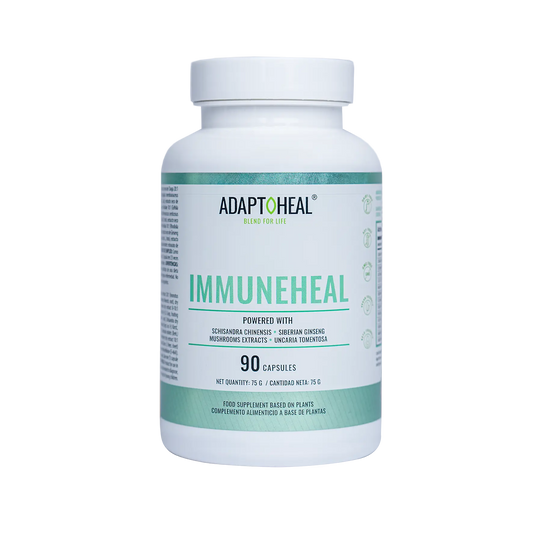
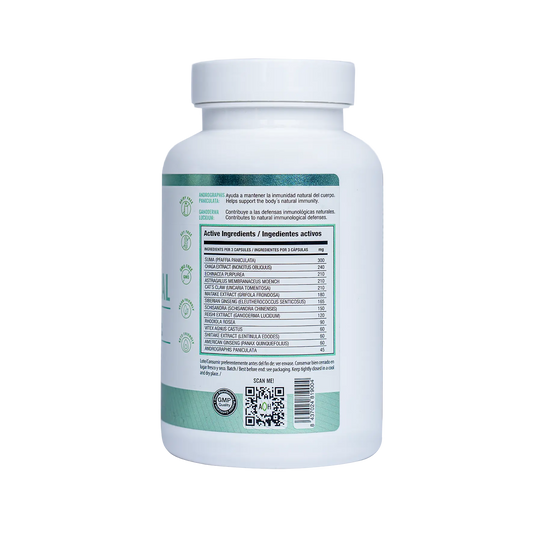
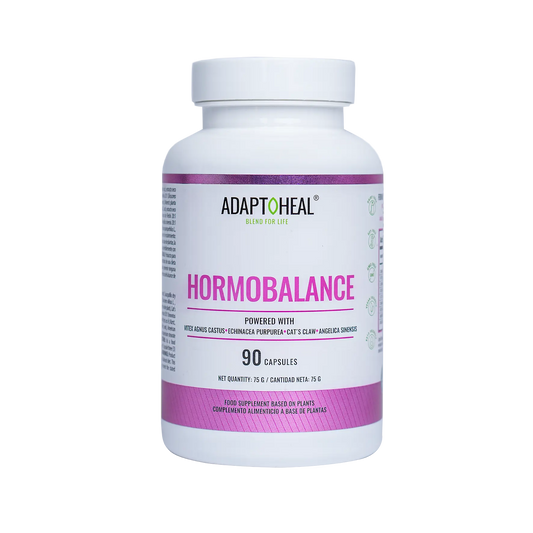
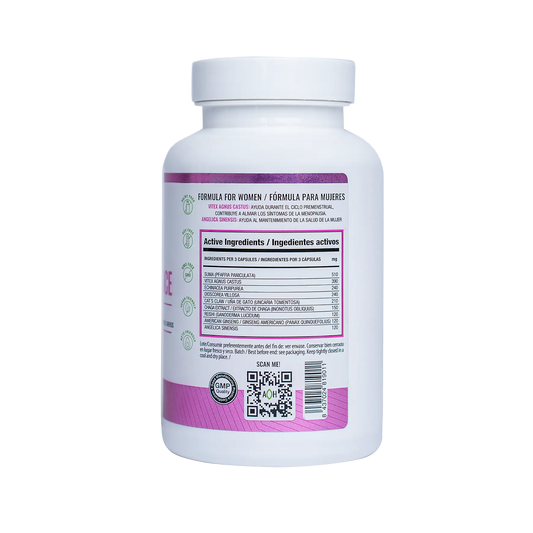
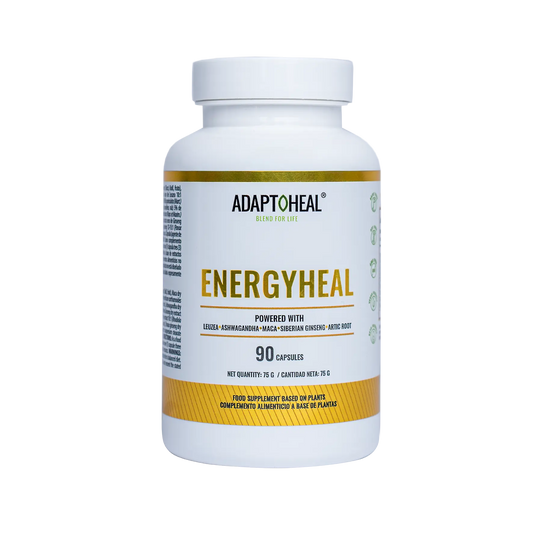
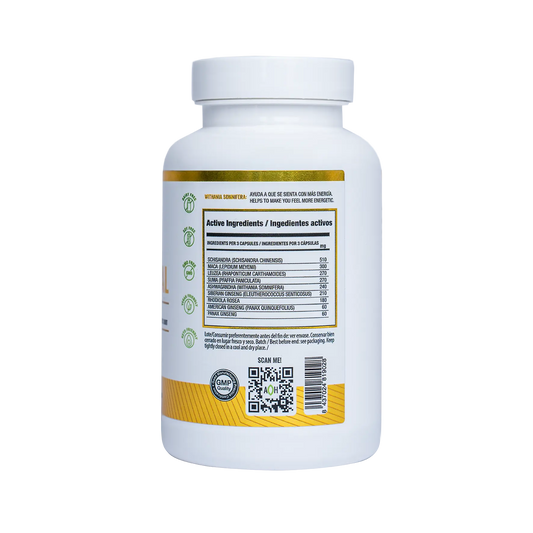
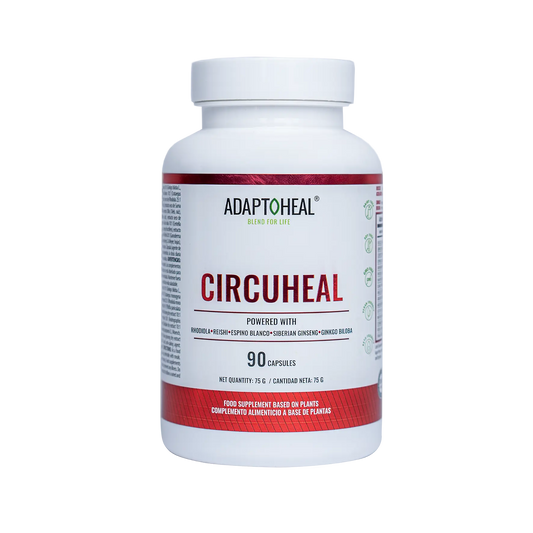
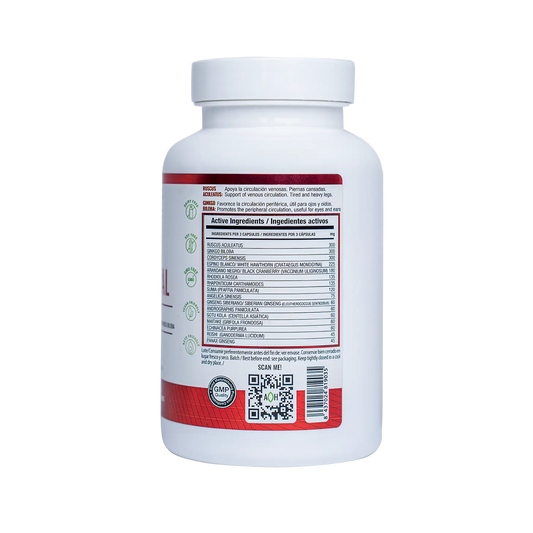
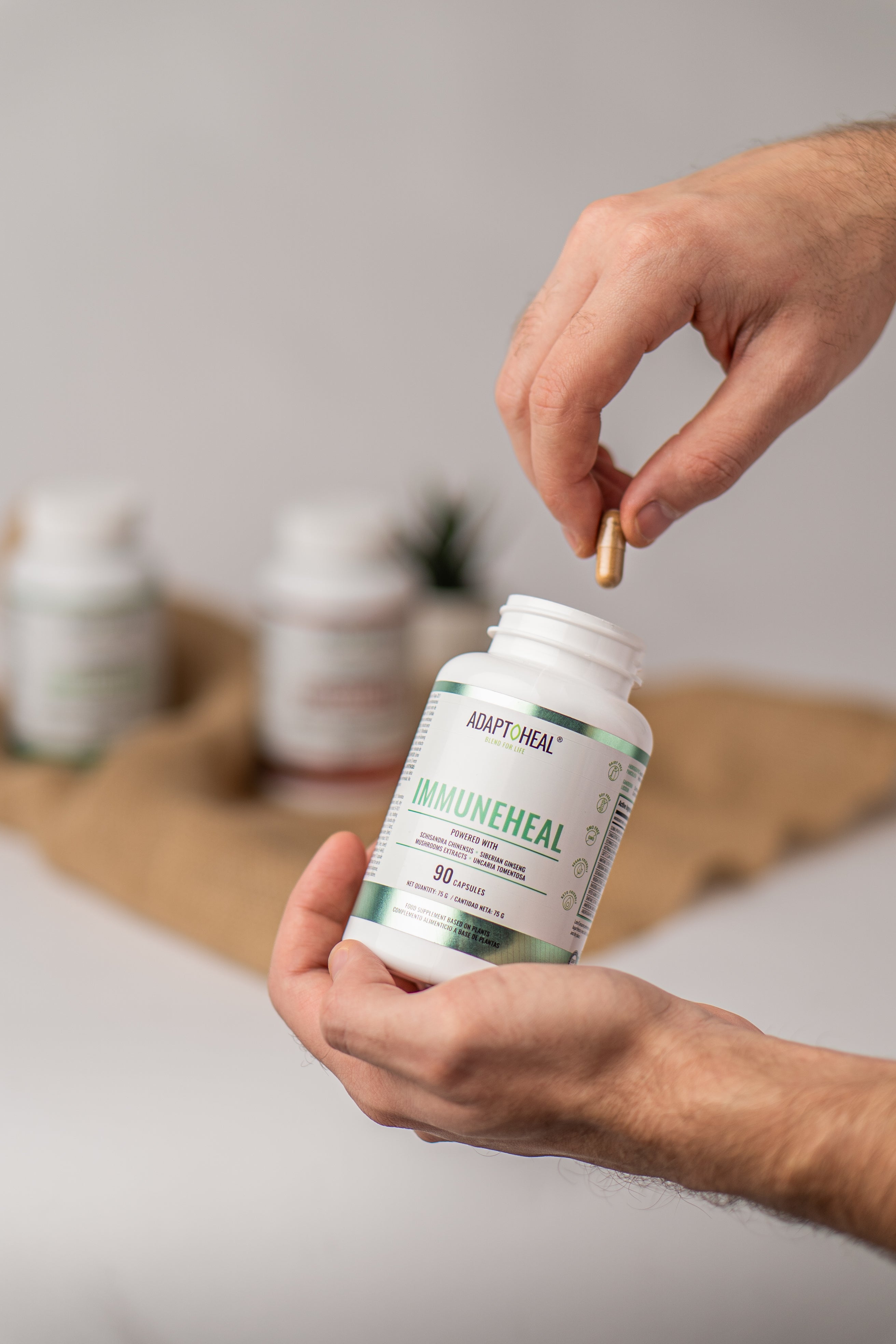
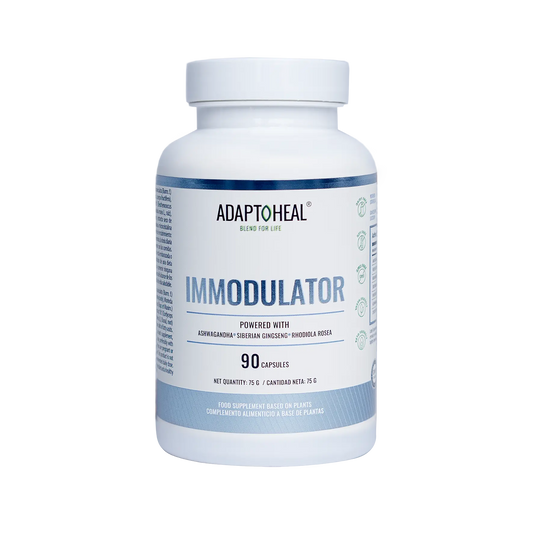
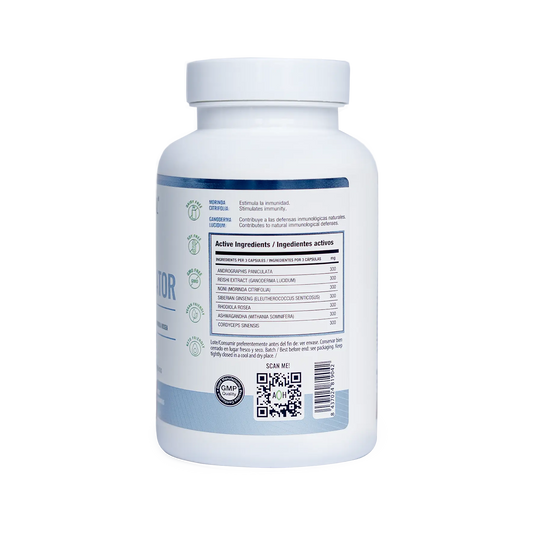
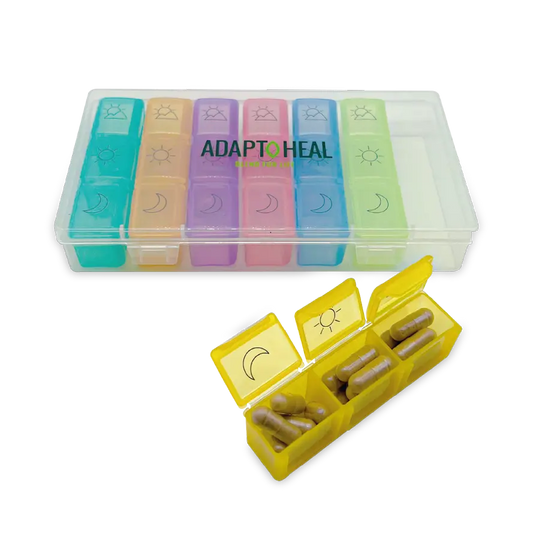
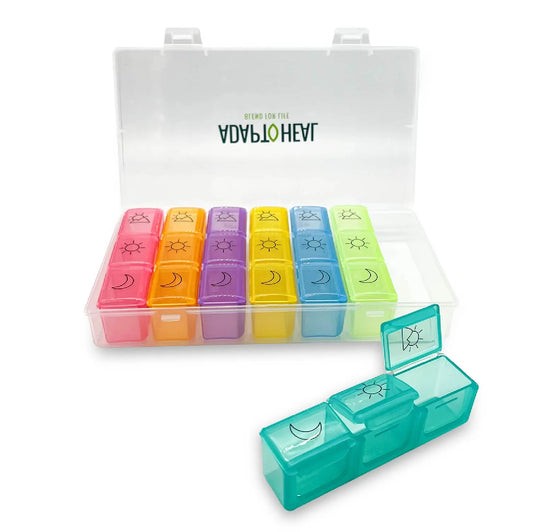
Leave a comment